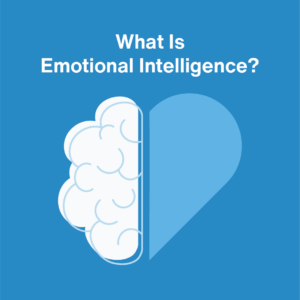Emotional Intelligence for Families
 Self-awareness is a key skill of emotional intelligence. One way to build self-awareness early within a child’s life is to build their feelings vocabulary.
Self-awareness is a key skill of emotional intelligence. One way to build self-awareness early within a child’s life is to build their feelings vocabulary.
Most children are familiar with the four basic emotions:
- Happy
- Sad
- Mad
- Scared
Inside Out provided a mainstream tool for self-awareness by personifying emotions within animated film. We were introduced to basic emotions, but with new words to expand vocabulary.
- Joy
- Sadness
- Anger
- Fear
- In addition, we were introduced to a new emotion: Disgust.
Emotions as characters with names, colors, and personalities helps encourage kids to talk about emotions. If you had a choice to talk about your anger (especially after getting in trouble at school and starting therapy as a child), or to talk about “Anger” after seeing Inside Out, which would be easier?
As a therapist, I am excited to see so many young people have a high level of emotional intelligence. This helps set a solid base as children and adolescents are adapting to stressors and building resilience. A systematic review that looked at parent’s emotional intelligence and their children’s mental health found that better emotional intelligence of parents supports better adaption of their children, improved mental health, and a lowered severity of mental health symptoms.
Emotional intelligence includes a lot of awareness and management: emotional awareness, social awareness, self-management, and relationship management.
While being able to name and label emotions is a start, there is much more to learn. Children, teens, families, and couples can all benefit from working on areas that fall within the category of emotional intelligence such the following—
- Understanding the connection of one’s thoughts, feelings, and behaviors
- Understanding the emotions of others and how to show empathy
- Noticing nonverbal and verbal social cues
- Understanding power dynamics within relationship
- Learning how to advocate for oneself and others
- Recognizing one’s strengths and challenges
- Learning how to manage impulsivity and reactivity
- Demonstrating flexibility and adaptability in response to change
- Learning how to communicate wants and needs within relationship
- Practicing social communication skills and learning how to interact with groups
- Learning skills to resolve interpersonal conflict
Children will be most successful when their caregivers are able to help teach and model these skills. For parents and caregivers who are bringing a child to therapy, the more engaged in the process, the better the results you will see. I encourage you to reflect on your own level of emotional awareness and self-assessment of skills listed above. If you struggle with modeling the skills that you would like your child to practice, then your own individual therapy may be beneficial for systemic change. This is the most direct approach to progress and long-lasting results. When the family is strengthened and supported, the individuals who are struggling the most will be better able to thrive.
Written By: Charlotte Johnson, MA, LPCC



























